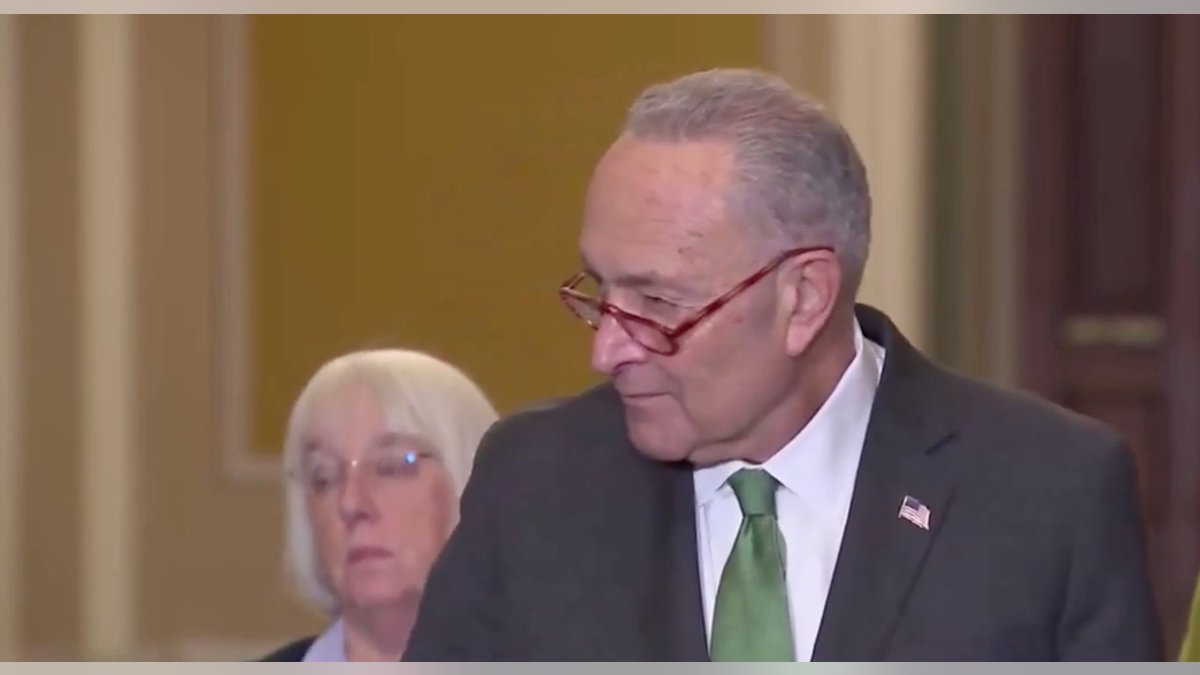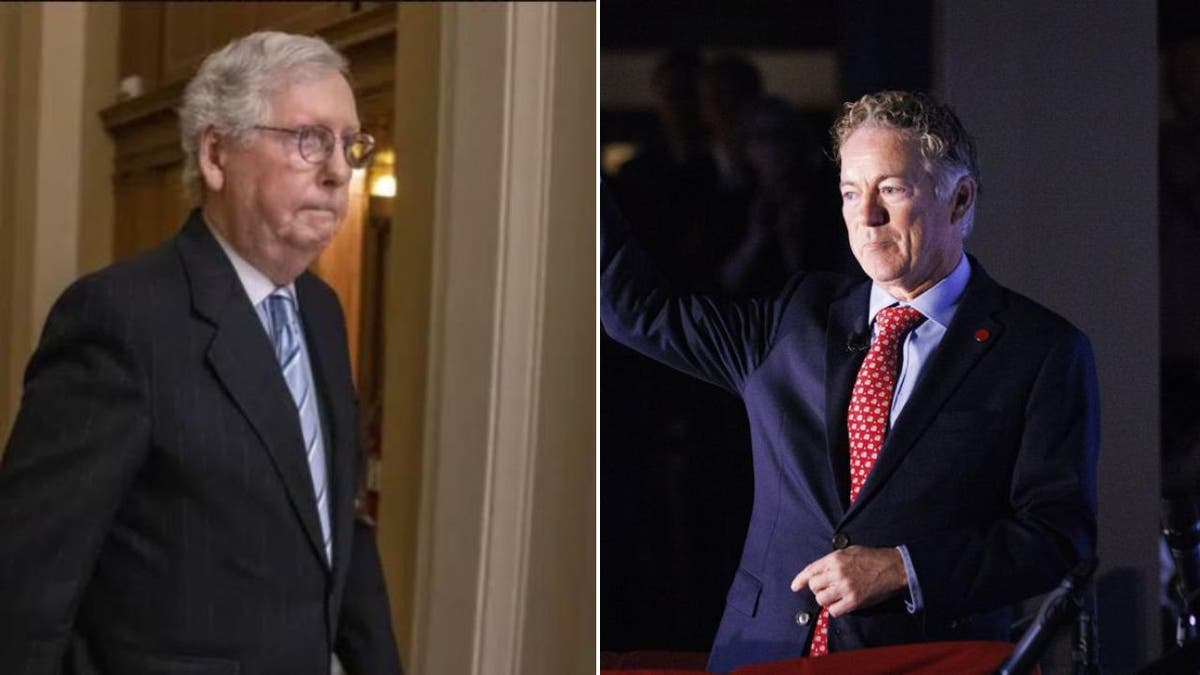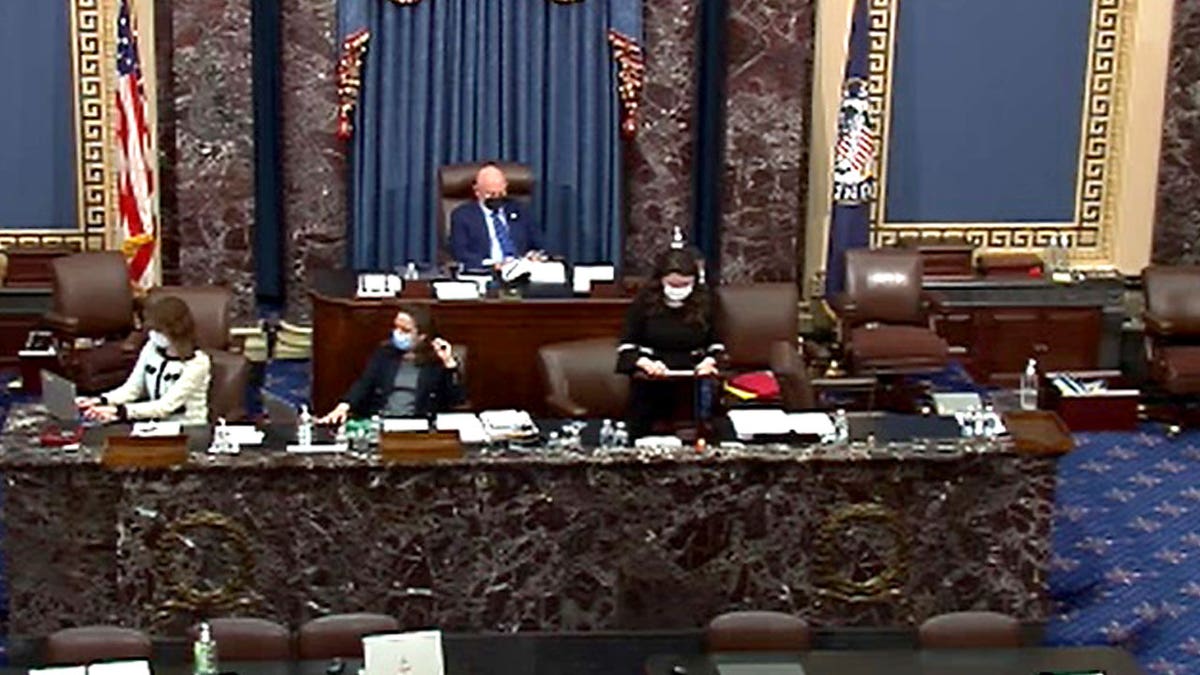Reporter to Chuck Schumer: How is rushing through a 4,100-page bill a 'functional process'?
A reporter asks Chuck Schumer if he can defend the end-of-year spending bill as a 'functional process.'
Senate Majority Leader Chuck Schumer, D-N.Y., found himself getting pressed Tuesday on whether he was overseeing a "functional process" to pass a massive federal government funding bill.
Senate leaders unveiled a bipartisan, "omnibus" $1.7-trillion spending bill to keep the government operating on Tuesday. The bill totals more than 4,000 pages, and Schumer was put on the defensive about it during a press conference.
"How is it a functional process to drop a 4,100 page bill this morning and expect a vote on it tomorrow?" CNN's Manu Raju asked. "Most of Congress hasn't had a chance to review this."
Schumer replied that "most" of the provisions were already known in advance.
CONGRESS RELEASES SPENDING BILL TO FUND GOVERNMENT THROUGH SEPTEMBER

Senate Majority Leader Chuck Schumer listens to a question at the Capitol on Dec. 20, 2022. (CSPAN)
"The bill has been carefully worked on by the Appropriations Committee for a very, very long time," Schumer said. "Most of the provisions were well known weeks and weeks and weeks in advance, and getting this bill done for the American people, which really matters, is the most important thing."
Federal spending will be increased from the last fiscal year under the bill, and it will allocate $858 billion in military spending and more than $772 billion for domestic programs for the remainder of the fiscal year that ends in September. The national debt already exceeded $31 trillion for the first time this year.
The $1.7 trillion legislation includes sending additional funds to Ukraine to support its ongoing war with Russia, election reforms intended to clarify the vice president's role in certifying electoral votes to avoid a repeat of the January 6, 2021, attack on the Capitol.
"Finalizing the omnibus is critical, absolutely critical for supporting our friends in Ukraine," Schumer said.
While the bill was bipartisan, many Republicans voiced their opposition to the process and the price tag online.

Minority Leader Mitch McConnell and Sen. Rand Paul, both Kentucky Republicans, appear to be on different sides of the new $1.7 trillion spending bill. (Associated Press)
Sen. Rand Paul, R-Ky., was among the unenthusiastic voices on the subject, posting a picture of the gargantuan bill, complete with mocked-up "warning" signs about adding to the national debt.
"I wonder how long it would take the clerk to read this…," he tweeted, seemingly threatening to force the Senate clerks to read all 4,100 pages of the bill on the floor, as Sen. Ron Johnson, R-Wis., did last year with the COVID-19 relief bill.
"Every Republican should be a NO on the omnibus spending bill," Rep. Byron Donalds, R-Fla., wrote on Twitter.
RICK SCOTT URGES MCCONNELL TO RESPECT HOUSE INCOMING GOP MAJORITY AND TANK YEARLONG BUDGET DEAL
"Dropped early this morning is a 4,155-page $1.7 TRILLION spending bill, and they’re expecting us to pass it without time to read it? This is what’s wrong with Washington: late night, back room deals to spend more of YOUR MONEY," Rep. Ben Cline, R-Va., wrote.
"Only in the Swamp," added Rep. Jim Jordan, R-Ohio.
This is expected to be the last major bill of the current Congress. Lawmakers are trying to pass the spending package before midnight on Friday to avoid the potential of a partial government shutdown heading into Christmas.

The Senate continues to listen to a clerk reading every page of President Joe Biden's $1.9T coronavirus stimulus relief bill in the chamber in March 2021.
Senate Minority Leader Mitch McConnell, R-Ky., had said he would look for a short-term package in the new year if the spending measure fails to gain bipartisan support this week. This would guarantee that the new Republican House majority would get to shape the legislation.
Still, McConnell suggested the newly released spending package was a victory for Republicans, even as many in the party are expected to vote against it. He said Republicans were able to successfully add increased defense spending that goes beyond what President Biden requested while also scaling back some domestic spending on the president's list of priorities.
CLICK HERE TO GET THE FOX NEWS APP
Fox Business' Landon Mion contributed to this report.








































